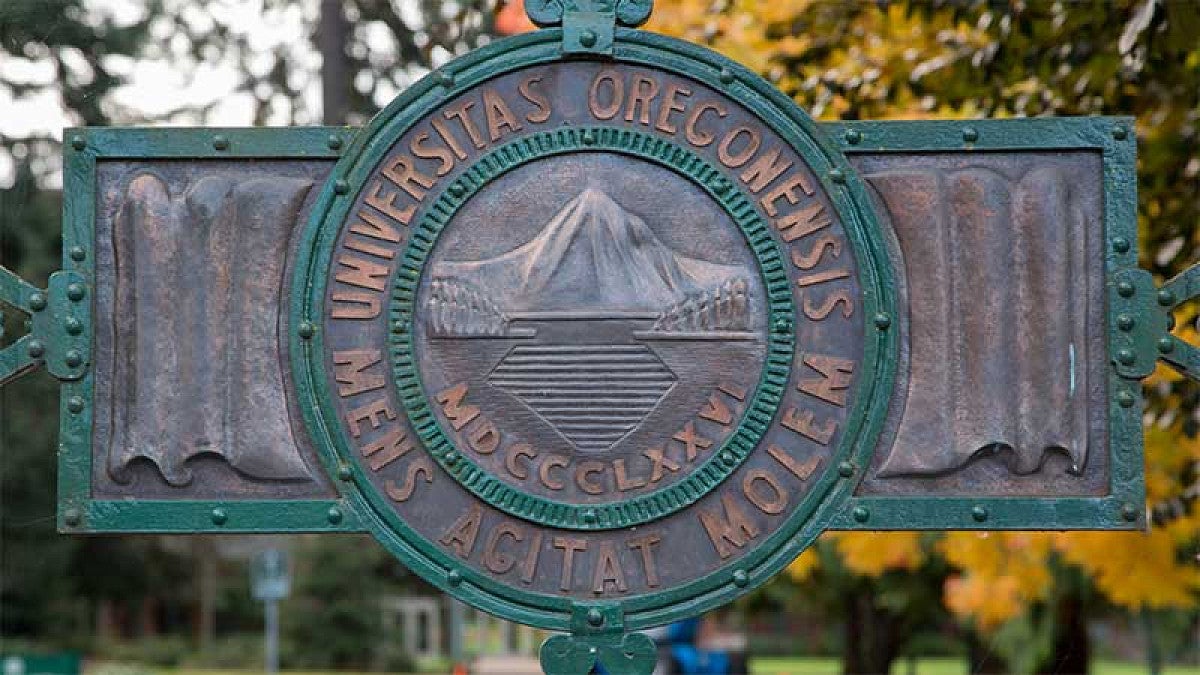The Board of Trustees of the University of Oregon is scheduled to set student tuition and fees for the 2021-22 academic year, following a public comment session, at its winter quarterly meeting.
The virtual meeting will also feature updates on the ongoing effects of COVID-19; the provost’s academic initiatives; student success initiatives for transfer and other nontraditional students; textbook affordability issues; and board action on a proposed thermal infrastructure project.
The board’s meeting will take place virtually March 8 and 9. The meeting agenda and materials, as well as a live webcast link, will be available on the board’s website.
UO President Michael H. Schill on March 1 released his recommendations on student tuition and fees. The president’s recommendations track closely with those developed by the Tuition and Fee Advisory Board — made up of students, staff and faculty members — over the course of its 10 public meetings over fall and winter terms.
Like the advisory board, Schill is recommending that tuition rates for next year’s incoming cohort of undergraduate students be set at a level that is higher than this year’s first-year students by 4.5 percent for Oregon resident students and 3 percent for nonresident students. Those rates would then be locked for those students for five years.
The recommended rates would only apply to the incoming class of first-year and transfer undergraduate students this fall, because under the UO’s new guaranteed tuition program tuition rates and mandatory fees for all returning undergraduate students are already set. The president is also recommending graduate tuition rates that vary from no increase to a 5 percent increase, depending on the program.
“I want to thank all the members of (the advisory board) for their hard work and dedication,” Schill wrote. “This proposal I am recommending to the Board is the product of their time and effort … and work by a group of students, faculty, and staff who care deeply about the UO and our ability to deliver quality, affordability, and accessibility.”
Schill decided to not recommend to the trustees a new mandatory athletics ticket fee for incoming students, noting it would not provide access to sports for continuing students. The new fee had been proposed by the Department of Intercollegiate Athletics to replace funding for student tickets that the Associated Students of the University of Oregon, the UO’s student government organization, previously provided to the athletics department through the student Incidental Fee but this year voted to reallocate to other priorities.
Instead of the new fee, Schill is adopting a program that will allow students the opportunity to purchase deeply discounted season tickets to football and most men’s and women’s basketball games. The university will provide $1.2 million in university licensing revenue to athletics to subsidize the sale of 5,000 student passes for $100 each. Athletics will also continue to sell single tickets to games subject to availability. Additional details about the sale of the student sports passes are being worked out.
“There appears to be consensus about the value of athletics and the importance of access to sporting events, at least among the students I heard from,” Schill wrote. “The main difference was over who should pay for that access—students or the Athletics Department.”
Because of the pandemic, the athletics department is running a deficit in the tens of millions of dollars this fiscal year and all department employees have taken salary cuts that other UO employees have not, Schill noted. All other PAC-12 public universities have some type of general fund or student fee subsidy plan for free tickets or reduced-rate ticket plans.
“I do not feel it is possible or appropriate for Athletics to be asked to fund access to free tickets,” he said.
The trustees will host a two-hour webinar-based public comment session specifically regarding the president’s tuition and fees proposal at 12:30 p.m. March 8. Registration is required by 5 p.m. on March 7 to participate. Priority will be given to students and prospective students.
Written comments can also be submitted on tuition or any other topic to the trustees via email to trustees@uoregon.edu at any time, but comments must be submitted by 5 p.m. on March 7 to ensure they are shared with trustees prior to their meeting.
Also on the trustees’ March 8 agenda are briefings on COVID-19 impacts, planning and operations from UO Associate Vice President and Chief Resilience Officer Andre Le Duc and on university finance and treasury reports from Vice President for Finance and Administration and Chief Financial Officer Jamie Moffitt.
Provost Patrick Phillips will provide an update on the UO’s academic initiatives, and the board will consider approving a $8.5 million project to purchase and install a new thermal tank to support the UO’s chilled water system.
On March 9, in addition to consideration of tuition and fees for the 2021-22 academic year, the board will hear a semiannual report on student success focused on transfer and nontraditional students presented by interim Vice Provost for Undergraduate Education and Student Success Kimberly Johnson, Coordinator of Nontraditional and Veteran Student Engagement and Success Maria Kalnbach, and Associate Vice President and Director of Student Financial Aid and Scholarships Jim Brooks.
The trustees will also receive an update on textbook affordability and open educational resources from ASUO Sen. Nick Keough, senior instructor of mathematics Mike Price, and eLearning and open educational resource librarian Rayne Vieger.
—By Saul Hubbard, University Communications


